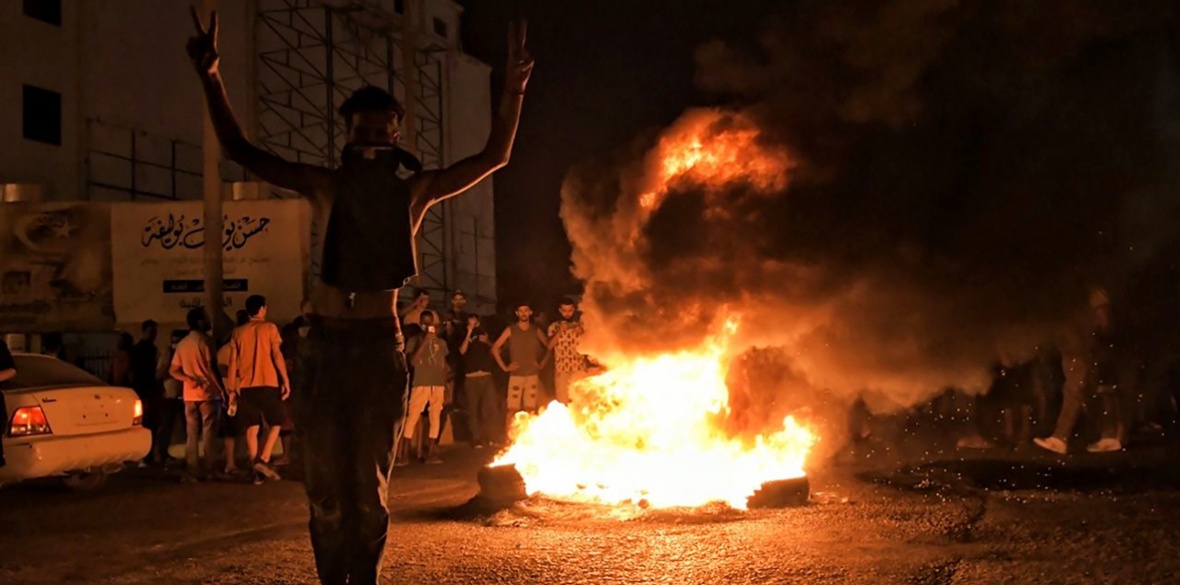This is the last article you can read this month
You can read more article this month
You can read more articles this month
Sorry your limit is up for this month
Reset on:
Please help support the Morning Star by subscribing here
LIBYA has been plunged into further turmoil by the resignation of the eastern-based government on Sunday night amid mass protests over poverty and poor living conditions.
Prime Minister Abdallah al-Thani submitted the resignation of his government to Aguila Saleh, speaker of the house of representatives, according to government spokesman Ezzel-Deen al-Falih.
The Tobruk-based parliament is allied to General Khalifa Haftar, whose Libyan National Army controls most of the east and south of the war-ravaged country.
He launched an offensive against the UN-recognised Tripoli-based Government of National Accord (GNA) headed by Fayez al-Sarraj in April as he sought to gain control of the capital.
His efforts were foiled largely by Turkey’s support for Mr Sarraj. Thousands of jihadists were mobilised by Ankara from the battlefields of Syria to fight on the front lines against Gen Haftar’s forces.
The eastern government accused the Central Bank and GNA of “plundering the country” and deliberately neglecting the region, which has suffered serious economic decline and a deterioration of public services.
In the past few days protesters have taken to the streets of Benghazi and other eastern cities in spontaneous anger over electricity shortages and deepening poverty.
At least one person was reported killed and three wounded in an attempt to storm security headquarters in the eastern town of Marj on Saturday.
The UN said the protests were “motivated by deep-seated frustrations about sustained poor living conditions, shortages of electricity and water, rampant corruption, misgovernance, and a lack of service provision throughout the country.” It called for thorough investigations into what it said was the use of excessive force by the security services.
Similar protests have taken place in Tripoli, with divisions in Mr Serraj’s government spilling out publicly. Last month he fired GNA interior minister Fathi Bashaga, sparking wild celebrations from militia members who fired weapons in the air.
But Mr Bashaga’s return to the country from a visit to Turkey two days later was marked by a street parade organised by rival militias. The pair publicly resolved their differences under pressure from the UN and other supporters of the Tripoli-based government and Mr Bashaga was reinstated.
The affair exposed the cracks and rivalry in the GNA, which is struggling to maintain unity.
Libya has been plagued by instability since the 2011 Nato-backed bombing campaign and ousting of Muammar Gadaffi.
A fragile ceasefire was agreed between the parallel governments last month amid hopes for a peaceful political resolution to the conflict.











